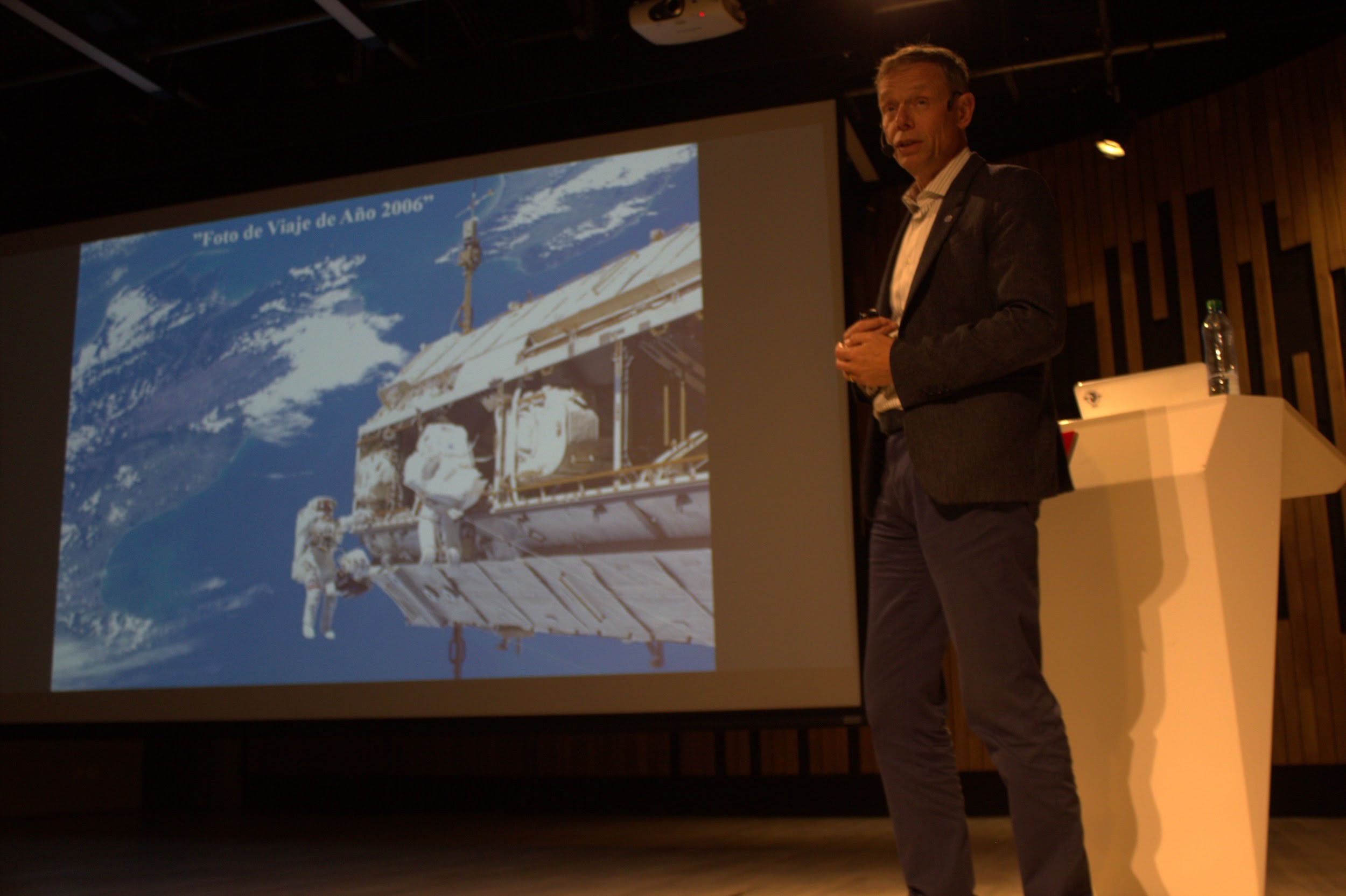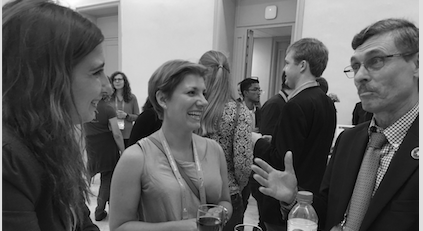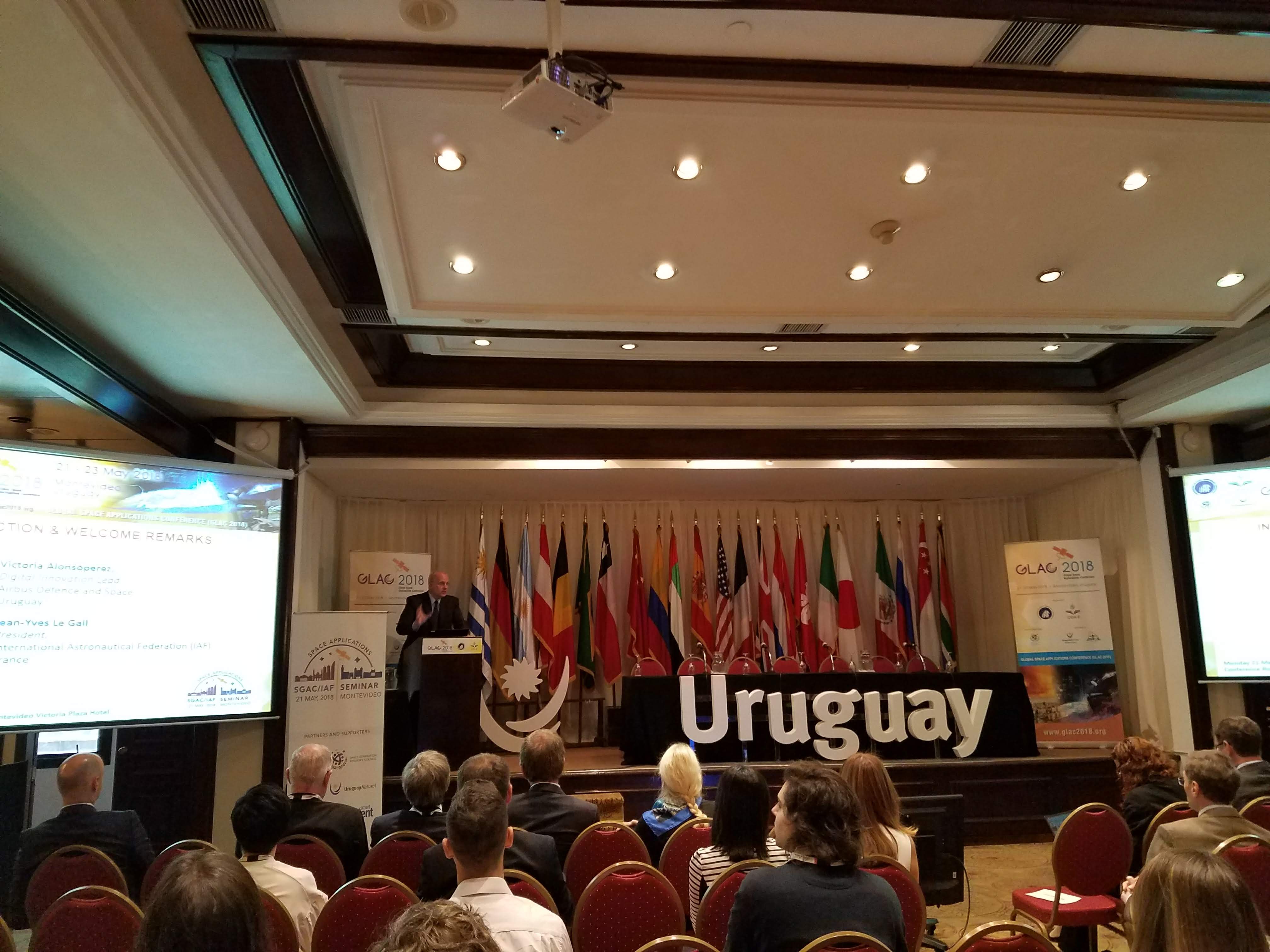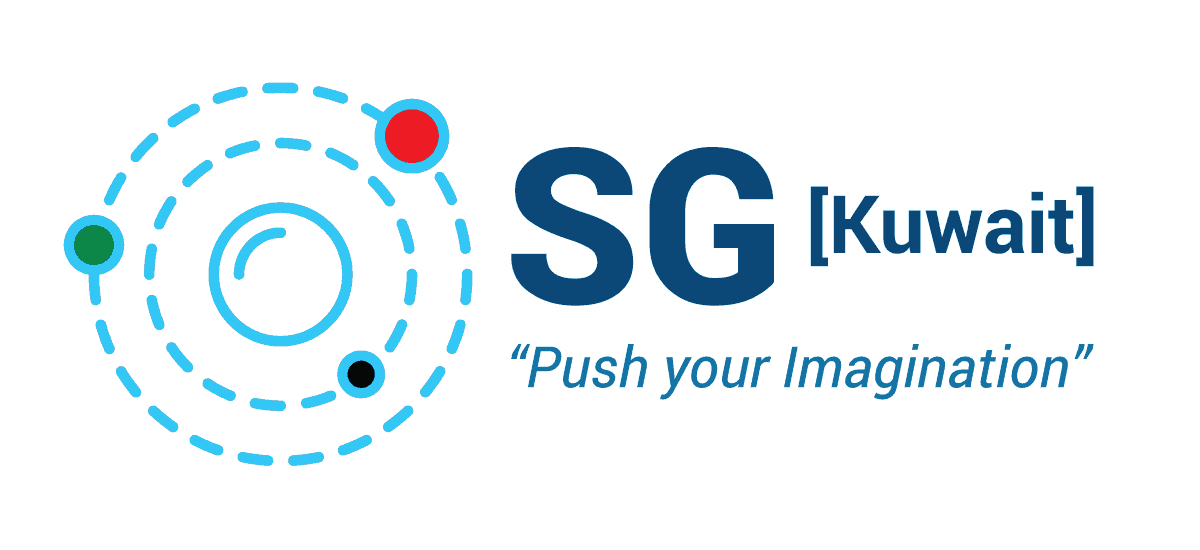Large Satellite Constellations and the Orbital Debris Environment
There is a growing trend towards the privatization and commercialization of space activities, a phenomenon frequently referred to as New Space Economy. With clear democratization of space, more space agencies and most notably non-governmental entities are starting to provide services in space which have a commercial value. Indiscriminately, the population of artificial satellites launched by these new space actors will keep on increasing at much higher rates than the estimated previously.
Looking Back: SG [Colombia]
During the World Space Week, SGAC organized the SG[Colombia], the first SpaceGen event that took place in Medellin and was hosted by the International Congress of Space Science and Technology CICTA 2018, which was organized by the University of Antioquia and the Francisco Jose de Caldas Distrital University.
Looking Back: [SG]Greece
Following the success from 2017, SG[Greece] 2018 – Space Opportunities in Greece and ESA took place on Friday the 23rd of November at the Ceremony Hall of the National Technical University of Athens and was organized as part of the ESA and SGAC-supported European Space Talks initiative.
Looking back: Space Generation Forum 2.0
Space Generation Forum 2.0 (SGF 2.0) took place over the weekend of June 16th-17th 2018 in Vienna, Austria, in connection with UNISPACE+50. SGF 2.0 was held to celebrate the creation of the Space Generation Advisory Council and the first Space Generation Forum held at UNISPACE III in 1999 as well as to celebrate and support UNISPACE+50.
Looking back: SYP at SpaceOps 2018
At SpaceOps 2018 in Marseille, France, (27 May - 1 June) SGAC organised the Students and Young Professionals (SYP) programme, of which the conference theme was ‘Inspiring Humankind’s Future’. The SYP activities have been planned collaboratively among SGAC, SpaceOps, and the French Space Agency (CNES), the host organisation of SpaceOps 2018.
Serbia’s Space Challenge
If someone were to talk about outer space exploration—not to mention space law—in Serbia when I was beginning my space law research in 2011, this person would be welcomed with a great deal of disbelief and a demoralising reply, proposing to pursue his or her space career elsewhere, likely a more developed country.
Looking back: the SGAC/IAF Seminar at GLAC
The first SGAC/IAF Seminar took place in Montevideo, Uruguay, in the framework of the Global Space Applications Conference (GLAC 2018). The event was a complete success with the participation of over 80 students and young professionals from 14 countries.
The first Namibian steps towards space
Senior Shimhanda, the Regional Coordinator for the African Region, has passed the entrance examination of Japan’s Kyushu Institute of Technology (Kyutech) to enrol in the Space Engineering International Course (SEIC). SEIC was launched in April of 2013 for aspiring students and engineers with a passion for space or the desire to return skills and technology to their home country.
I have a dream: ‘third world’ countries in space
Our country, Lebanon, did not have dreams for several years and was under the shadows of corrupt geopolitics and environmental trauma. For several years, I believed in the myth of a third world country: that Lebanon would never rise to the wonders of the United Arab Emirates, United States, or Europe. I graduated high-school in 2017 and was made to start university in January 2018 at the American University of Beirut.
Report from SG[Kuwait]
Reaching to space has been always a source of inspiration, and the Kuwaiti youth are looking for new opportunities to join the space community all around the world to contribute on the future. Space Generation Kuwait or SG [Kuwait] is an initiative that creates the environment for the local youth to express their ideas and thoughts on how to involve Kuwait into space. SG [Kuwait] will communicate the produced ideas to decision makers in the country.








